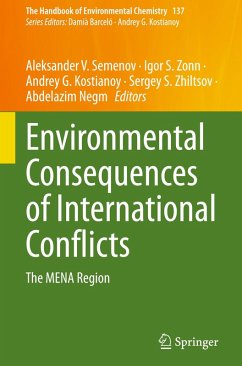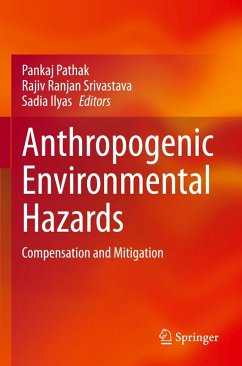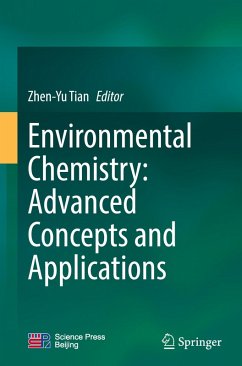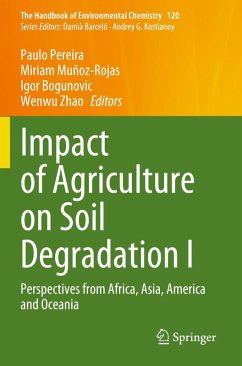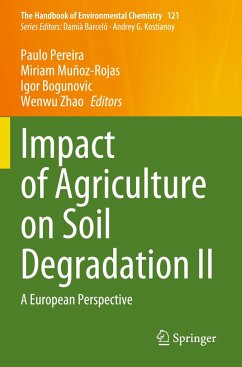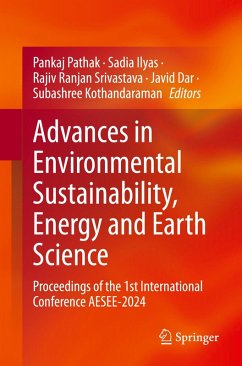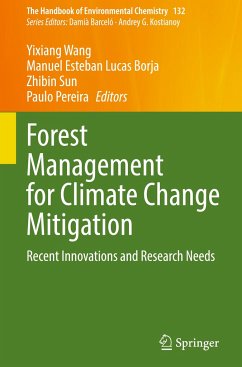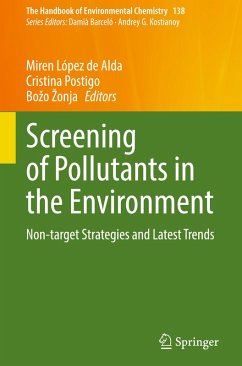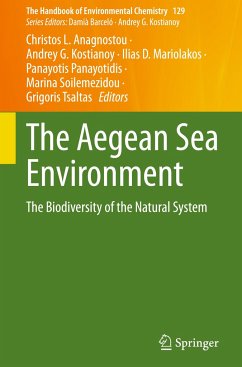
Climate Change and Environmental Degradation in the MENA Region

PAYBACK Punkte
65 °P sammeln!
This book reviews the factors contributing to the degradation of natural resources in the MENA region caused by climate change and contamination. It examines how these issues affect humans, their health, resources, and the planet's future. The impact of climate change is evident in the diminishing quality of land, water, and air, which leads to several environmental problems such as drought, land degradation, vegetation decline, reduced water bodies, soil damage, and other ecological concerns. Divided into 21 chapters, the book comprehensively analyses the risks brought about by climate change...
This book reviews the factors contributing to the degradation of natural resources in the MENA region caused by climate change and contamination. It examines how these issues affect humans, their health, resources, and the planet's future. The impact of climate change is evident in the diminishing quality of land, water, and air, which leads to several environmental problems such as drought, land degradation, vegetation decline, reduced water bodies, soil damage, and other ecological concerns. Divided into 21 chapters, the book comprehensively analyses the risks brought about by climate change and environmental pollution. The chapters are contributed by a diverse team of authors from various countries in the MENA region, who offer a comprehensive overview of recent technologies, future developments, and several case studies analyses. In this book, readers will find topics such as:
Impact of climate change, saline irrigation water, and other factors on soil degradation and carbon and nitrogen cycling in the MENA regionDesertification, flood-storms, contamination, and their effects on natural resources and sustainability in the regionImpact of recycled scrap steel on soil contamination, agriculture wastewater on lakes degradation and water pollution, and the effects of wastewater on agricultureConsequences of mismanaging natural resources and their influence on the environmentinterrelation between Greenhouse Gas Emissions, Climate Change, and the deterioration of natural resourcesApplication of non-conventional methods to address natural resource issues.
This book calls for action to protect natural resources and the environment. These measures may include enacting legislation and regulations to restrict human activities, developing public understanding of the necessity of environmental protection against climate change and environmental contamination, and supporting sustainable behaviours to preserve natural resources. Given its breadth, the bookappeals to scholars, researchers, and policymakers alike.
Impact of climate change, saline irrigation water, and other factors on soil degradation and carbon and nitrogen cycling in the MENA regionDesertification, flood-storms, contamination, and their effects on natural resources and sustainability in the regionImpact of recycled scrap steel on soil contamination, agriculture wastewater on lakes degradation and water pollution, and the effects of wastewater on agricultureConsequences of mismanaging natural resources and their influence on the environmentinterrelation between Greenhouse Gas Emissions, Climate Change, and the deterioration of natural resourcesApplication of non-conventional methods to address natural resource issues.
This book calls for action to protect natural resources and the environment. These measures may include enacting legislation and regulations to restrict human activities, developing public understanding of the necessity of environmental protection against climate change and environmental contamination, and supporting sustainable behaviours to preserve natural resources. Given its breadth, the bookappeals to scholars, researchers, and policymakers alike.



